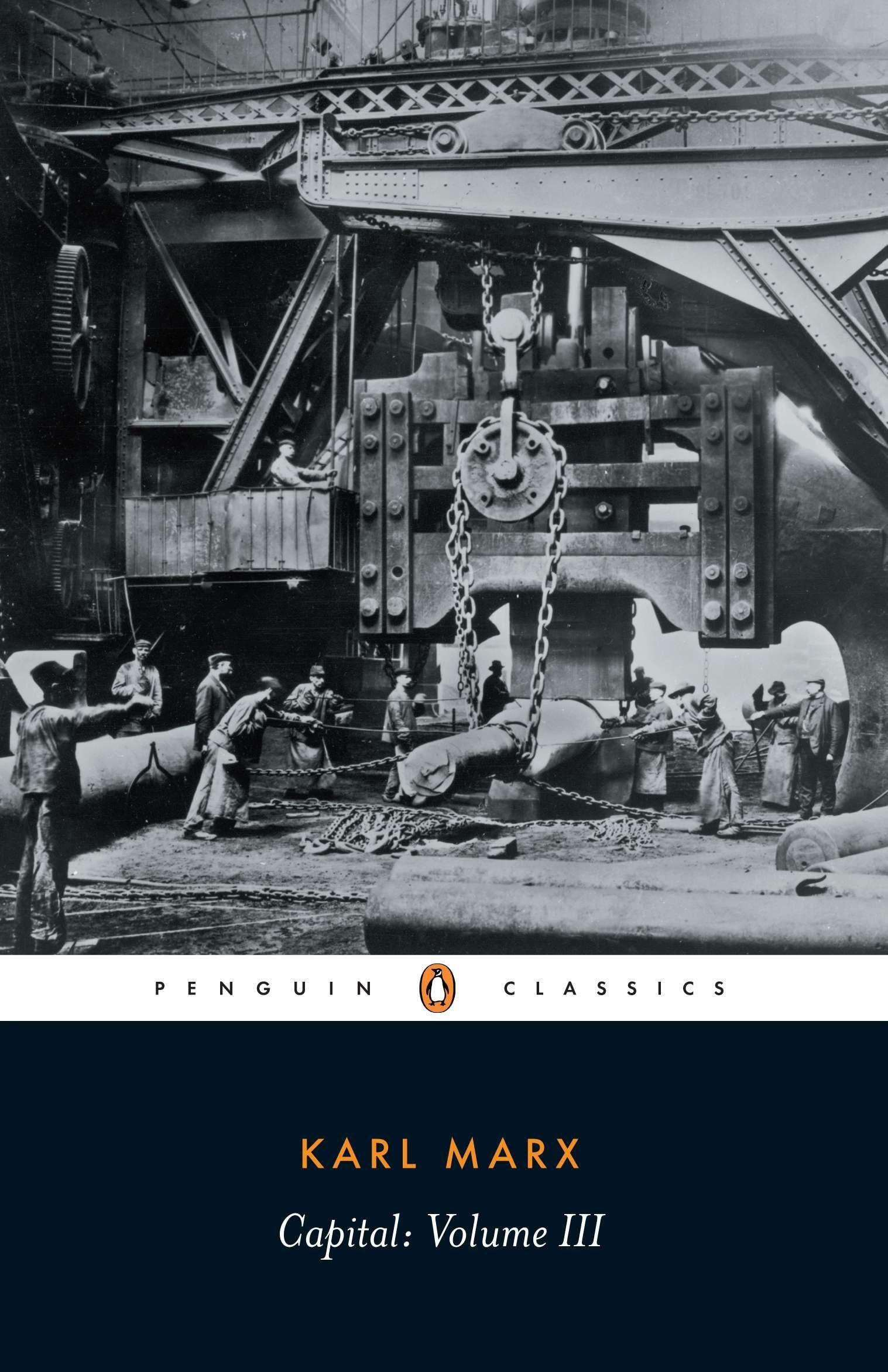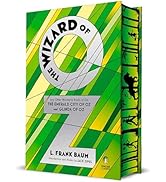Customer Services
Copyright © 2025 Desertcart Holdings Limited


Capital: A Critique of Political Economy, Vol. 3 (Penguin Classics) [Marx, Karl, Fernbach, David, Mandel, Ernest] on desertcart.com. *FREE* shipping on qualifying offers. Capital: A Critique of Political Economy, Vol. 3 (Penguin Classics) Review: review - Capital Volume III completes Marx's unrivaled trifecta. Upon completing Vol I-III of Capital, one underground rumor is shown to be true, and another is not. First the correct rumor: the reader will arise from his study reborn into an invulnerable phoenix! Now for the incorrect rumor: with outstretched wings, your flight will not be too close to the sun, as Icarus found out, for Marxian phoenix wings are not made of feathers and wax, but knowledge, sweat, and blood! Marx remarked of Capital Vol I, that "there is no royal road to science, and only those who do not dread the fatiguing climb of its steep paths have a chance of gaining its luminous summits," what he did not inform the reader is that those who climb all three luminous summits will cease need to climb at all! Soaring above the (theoretical) world is now readily at their disposal! In Volume III all the questions, literally all of them, that the reader is left with in regards to Vol I are answered. One might wonder upon completing Vol I, why places that employ no labor (e.g., laundry mats), or places that employ less labor - which is the source of surplus value - than others in the same industry, are able to derive such larger profits. One might also wonder what the role of monopoly or inter-corporate collusion will do to prices. And again, one may wonder further what role supply and demand have upon price and value, since it's ignored in Vol I, yet it is intuitively obviously it must play some role. Marx addresses all of these questions and more (e.g., the answer to the meaning of life, whether or not chocolate is better than strawberry, and the final digit in π (pi)!) Seriously though, despite the hyperbole, Marx does address numerous questions which the reader is left with after completing Vol I. Some of the primary discussions emphasized in Vol III deal with the transformation problem, and also the share of profits across common industries. The reader learns in Vol I that unnecessary labor is the source of profit/surplus value, and because it is unnecessary it's clearly exploitation. This means that the more people work in accords with socially necessary labor time, the more the capitalist can generate a profit. But in a globalized economy, or even within a nation, it's clear that some places employ more workers than others, and the profits between these competing firms do not mesh with Marx's theory in Vol I. Of course people also rarely take the time to see how Marx addressed this issue in Vol III. Marx points out those industrial investments are made by the capitalist class as a whole, so we cannot analyze anyone sectors surplus in relation to their constant and variable capital (S/C+V) and expect for the numbers to all align. Instead we have to look at the S/C+V in relation to that entire sector of the economy, and that will give us the rate of profit in general. Since investments are made by the capitalist class as a whole and consumption is therefore done on this wider basis. But this leads each industry to try to cut down on cost, reducing their work force, and trying to increase productivity and exhaust or invest in newer and more efficient constant capital. Thus the race to the top by each firm is in fact the race to the bottom for the capitalist class overall! This leads to Marx's theory of crisis, which is frequently misread, maligned, or completely ignored and brushed aside. Although Marx referred to the theory as the law of the tendency of the fall in the rate of profit, which leads readers to believe that there is a law in the interworkings of capitalism that mandates the rate of profit to fall constantly, he also offered six counteracting tendencies to the rate of profit. These six counteracting tendencies are increasing the rate of exploitation, depressing wages, cheapening the elements of constant capital, relative over population, foreign trade, and the increase of stock capital. So for all those people who point to any one year, or series of years in capitalism and claim "look Marx was wrong, profits haven't fallen," they best check the previously mentioned six tendencies. As Michael Roberts, among others, have pointed out, the year before any crisis, it does turn out that there is a rise in the organic composition (C and V) of capital (i.e., more C than V), which does in fact prove Marx's point overall. The other intriguing element of Vol III is the discussion of credit, finance, securities, banks, etc. It's quite overwhelming the degree to which Marx's predictions in Vol III have come true in regards to the modern finance industry and financial capital in general. Every day we hear things like Wall Street is making record profits, and the price and amount of securities have never been higher! Yet we see that Wall Street is sitting on their money and failing to invest it in anything productive. How can we call this profit then, if profit is derived from exploited labor? In fact this is fictitious capital, or potential money capital, which presently sits idle. For those who say Wall Street is making record profits, they are fetishizing finance, and failing to get at the essence of the capitalist system. Marx also deals with merchants' capital in this book, and the role of exploitation in regards to the employees of merchants' capital (e.g., wal mart or publix employees). Are they exploited? They seem underpaid, yet they do not engage in productive labor. In fact they are exploited in a sense. As Marx points out, merchants in buying up products en masse get it at less than its produced value, and they derive a profit by selling the products at their actual value. But the merchants don't actually do a lot of work. The Walton family certainly doesn't do a whole lot of work for their income. It is the employees of merchants' capital (the truck drivers, the shelf stockers, the cashiers) that help these merchants realize the value difference between their purchase of bulk commodities, and their sale. And yet they are not compensated for the overall difference, ergo they are exploited too. In sum, I've hardly covered the primary details laid out in Vol III. And Capital Vol III is every bit as important now, if not more so, than it was when Engel's published it toward the end of the 19th century. It is also every bit as important as Vol I. One cannot understand capitalism off the first volume alone. It's not exaggeration to say that in order to understand, fully, the capitalist world we live in today, and in order to understand how to overcome, one must read Marx's trilogy. It is not easy task, but the phoenix wings are totally worth the belabored process. Review: Gift for son - Not sure what this book is about. I bought for my son and he loved it.






















| Best Sellers Rank | #38,707 in Books ( See Top 100 in Books ) #26 in Political Economy #37 in Communism & Socialism (Books) #98 in History & Theory of Politics |
| Customer Reviews | 4.6 out of 5 stars 445 Reviews |
C**B
review
Capital Volume III completes Marx's unrivaled trifecta. Upon completing Vol I-III of Capital, one underground rumor is shown to be true, and another is not. First the correct rumor: the reader will arise from his study reborn into an invulnerable phoenix! Now for the incorrect rumor: with outstretched wings, your flight will not be too close to the sun, as Icarus found out, for Marxian phoenix wings are not made of feathers and wax, but knowledge, sweat, and blood! Marx remarked of Capital Vol I, that "there is no royal road to science, and only those who do not dread the fatiguing climb of its steep paths have a chance of gaining its luminous summits," what he did not inform the reader is that those who climb all three luminous summits will cease need to climb at all! Soaring above the (theoretical) world is now readily at their disposal! In Volume III all the questions, literally all of them, that the reader is left with in regards to Vol I are answered. One might wonder upon completing Vol I, why places that employ no labor (e.g., laundry mats), or places that employ less labor - which is the source of surplus value - than others in the same industry, are able to derive such larger profits. One might also wonder what the role of monopoly or inter-corporate collusion will do to prices. And again, one may wonder further what role supply and demand have upon price and value, since it's ignored in Vol I, yet it is intuitively obviously it must play some role. Marx addresses all of these questions and more (e.g., the answer to the meaning of life, whether or not chocolate is better than strawberry, and the final digit in π (pi)!) Seriously though, despite the hyperbole, Marx does address numerous questions which the reader is left with after completing Vol I. Some of the primary discussions emphasized in Vol III deal with the transformation problem, and also the share of profits across common industries. The reader learns in Vol I that unnecessary labor is the source of profit/surplus value, and because it is unnecessary it's clearly exploitation. This means that the more people work in accords with socially necessary labor time, the more the capitalist can generate a profit. But in a globalized economy, or even within a nation, it's clear that some places employ more workers than others, and the profits between these competing firms do not mesh with Marx's theory in Vol I. Of course people also rarely take the time to see how Marx addressed this issue in Vol III. Marx points out those industrial investments are made by the capitalist class as a whole, so we cannot analyze anyone sectors surplus in relation to their constant and variable capital (S/C+V) and expect for the numbers to all align. Instead we have to look at the S/C+V in relation to that entire sector of the economy, and that will give us the rate of profit in general. Since investments are made by the capitalist class as a whole and consumption is therefore done on this wider basis. But this leads each industry to try to cut down on cost, reducing their work force, and trying to increase productivity and exhaust or invest in newer and more efficient constant capital. Thus the race to the top by each firm is in fact the race to the bottom for the capitalist class overall! This leads to Marx's theory of crisis, which is frequently misread, maligned, or completely ignored and brushed aside. Although Marx referred to the theory as the law of the tendency of the fall in the rate of profit, which leads readers to believe that there is a law in the interworkings of capitalism that mandates the rate of profit to fall constantly, he also offered six counteracting tendencies to the rate of profit. These six counteracting tendencies are increasing the rate of exploitation, depressing wages, cheapening the elements of constant capital, relative over population, foreign trade, and the increase of stock capital. So for all those people who point to any one year, or series of years in capitalism and claim "look Marx was wrong, profits haven't fallen," they best check the previously mentioned six tendencies. As Michael Roberts, among others, have pointed out, the year before any crisis, it does turn out that there is a rise in the organic composition (C and V) of capital (i.e., more C than V), which does in fact prove Marx's point overall. The other intriguing element of Vol III is the discussion of credit, finance, securities, banks, etc. It's quite overwhelming the degree to which Marx's predictions in Vol III have come true in regards to the modern finance industry and financial capital in general. Every day we hear things like Wall Street is making record profits, and the price and amount of securities have never been higher! Yet we see that Wall Street is sitting on their money and failing to invest it in anything productive. How can we call this profit then, if profit is derived from exploited labor? In fact this is fictitious capital, or potential money capital, which presently sits idle. For those who say Wall Street is making record profits, they are fetishizing finance, and failing to get at the essence of the capitalist system. Marx also deals with merchants' capital in this book, and the role of exploitation in regards to the employees of merchants' capital (e.g., wal mart or publix employees). Are they exploited? They seem underpaid, yet they do not engage in productive labor. In fact they are exploited in a sense. As Marx points out, merchants in buying up products en masse get it at less than its produced value, and they derive a profit by selling the products at their actual value. But the merchants don't actually do a lot of work. The Walton family certainly doesn't do a whole lot of work for their income. It is the employees of merchants' capital (the truck drivers, the shelf stockers, the cashiers) that help these merchants realize the value difference between their purchase of bulk commodities, and their sale. And yet they are not compensated for the overall difference, ergo they are exploited too. In sum, I've hardly covered the primary details laid out in Vol III. And Capital Vol III is every bit as important now, if not more so, than it was when Engel's published it toward the end of the 19th century. It is also every bit as important as Vol I. One cannot understand capitalism off the first volume alone. It's not exaggeration to say that in order to understand, fully, the capitalist world we live in today, and in order to understand how to overcome, one must read Marx's trilogy. It is not easy task, but the phoenix wings are totally worth the belabored process.
B**O
Gift for son
Not sure what this book is about. I bought for my son and he loved it.
F**S
Read Marx, now more than ever
You need to read all three volumes to understand Capital, you need to read Capital to understand Marx, and you need to read Marx to understand the world--and to help with the crucial theoretical work of figuring out what must be changed to get rid of capitalism and to begin a new, human society. More specifically, Vol. 3 contains the chapters on the tendency of the rate of profit to fall, and the counter-tendencies, which is essential to understanding the recent economic crisis and the continuing world recession.
M**T
yes!! yes!!!!!!
yes! yes!!!!
O**E
Perfect OK
Perfect OK
M**E
An Essential Text (if a bit difficult for the lay reader)
The third volume of Das Kapital is a bit more well known than the second and it makes for some interesting, if somewhat dry, reading. This volume has gained notoriety through the works of Bohm-Bawerk who insisted that Marx's theory of value was inconsistent. In the third volume, Marx says that instead of commodities selling at their value per se, they rather sell according to a certain formula that he lays out. Instead f commodities selling at the "old" formula of p= v+s+c, now commodities sell at r(v+c)+v+c. Now, such a modification does not alter the dynamics of the capitalist system one whit. Rather, it allows Marx to show how values as such are translated into prices. Rudolf Hilferding wrote an excellent criticism of Bohm-Bawerk's critique which is, alas, rather hard to find now. *whew* Alright, the rest of the volume deals with Marx's theory of rent and his rather short contribution to a theory of credit and banking. once again, Rudolf Hilferding elaborates upon Marx's theory of credit, banking, and "fictitious capital" in his work Das Finanzkapital. Written in 1911, it predicted the First World War and was regarded as the fourth/ fifth volume of Capital (the fourth volume of Capital sometimes held as Marx's Theories of Surplus Value, a history of bourgeois economic theory). I hope this has been relatively coherent. All in all, it isn't Daniel Steele or the Da Vinci Code. Nor is it the Leftist equivalent of Mein Kampf. Rather, it's a somewhat dry, but extremely important, economics text, far better than anything Adam Smith ever produced. I recommend it to economics students, Marxian scholars, and anyone seeking an economic justification of socialism. I hope this was of some use to you.
P**'
Marx's classic critique of capitalism
Marx's classic critique of capitalism is as relevant today as it was 150 years ago when it was written. If anyone is fooled into thinking the system has solved the '08 financial crises, they are in for a rude awakening Another crises is in the future, sooner than later, I suspect.
D**A
used book
used book as good as new.
Trustpilot
4 days ago
2 weeks ago